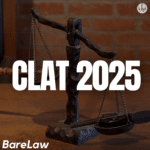
Table of Contents
What Are The Steps To Prevent Cheque Bounce
Introduction
The Negotiable Instruments Act was introduced in 1881 because many transactions have been made using such instruments. Negotiable instruments are cashless modes of payment used to transfer funds from one entity to another.
A cheque, a negotiable instrument, has recently become a widely used mode of payment, with businesses and general people using cheques for payments. However, issues have started emerging since people began using cheques for payment. Dishonour of cheques became a huge problem, and the payee faced difficulties and could not get payment back from the payer. In 1988, the Negotiable Instruments Act of 1881 was amended, and the disowner of the cheques was made a punishable offence to prevent harassment of the drawer.
In this article, I will discuss what a cheque is, when it bounces, Section 138 and the conditions required for its application, the defences available to the defendant in cheque bounce cases, and the new cheque bounce rules.
What’s a Cheque?
Negotiable instruments include cheques, promissory notes, and bills of exchange, which present money to a person at a future date.
Section 6 of the Act defines cheques. According to this section, a cheque is a bill of exchange drawn on a specific banker and is not payable otherwise on demand. There are three parties to a cheque: the drawer (who issues a cheque), the drawee (who is a financial institution) and the payee (the person who will receive the funds).
A cheque is valid for up to three months from its issuance, after which it becomes invalid.
What is ‘Cheque Bounce’, and what is the reason for the cheque bounce?
Cheque dishonour or Cheque Bounce is a criminal act under the Negotiable Instruments Act 1881. Section 138 of the Act states that cheque dishonour is due to insufficient funds. The punishment for cheque dishonour is two years or a fine that may be twice the cheque amount or both.
Cheque bounce happens when the bank returns a cheque due to insufficient funds or other reasons. The following can be the reasons for the return of the cheque:
- The signature of the drawer does not match
- Overwriting on the cheque
- The cheque was presented after three months from the date of issuance
- Insufficient balance
- The account holder himself stops the payment
- The account number does not match
- Some altercations have been made to the cheque
- The bank doubts the authenticity of the cheque
- The cheque amount is exceeded or crosses the limits
- The cheque was presented in the wrong branch
Ingredients for the offence of Section 138 of the NI Act:
- A cheque must have been drawn to discharge some existing debt or liability. This means that only those offences will come under this section, where the drawer has some liability to pay someone. Money given for the commission of an offence is not legally recoverable. The cheques given as a gift cannot be recovered under this section.
- The payee must present the cheque to the bank within three months of the date of issuance.
- Payee must send a legal notice to the drawer within 30 days of receiving the bounced cheque with the receipt of the information on the cheque bounce.
- Drawer did not pay the money within 15 days of serving legal notice.
Defences to cheque bounce cases
The defence must present evidence to prove his innocence and the documents to counter the complainant’s claims. This may include proof of institution to stop payment, evidence of technical error, mistaken identity, etc. The defence has to prove that there was no guilty intention on his part or has any reason to expect dishonour of the cheque. The burden of proof lies on the accused to prove himself innocent. So, the defence can find loopholes which can work in the favour of the accused and that he can use in his defence. Some of the defences are the following:
- When a cheque is given security and not for the discharge of any debt, then the accused can prove that the cheque that he gave was given for security. This is because. The chequing cheque did not match the equal bowasobounced. Thewer directed the payment to be stopped due to factors different from insufficient funds, and notion 138 cannot be applied. Loan
- given for unaccounted money or missing money is not considered for legal recovery
- Section 139 of the NI Act declares that the accused is presumed innocent unless the contrary is proved. The accused must present reasonable doubt in his defence, which can fail the prosecution case under section 138. In the Rangappa vs Mohan case, the court stated that the defence must prove a preponderance of probabilities, but it is not required to prove the higher degree beyond a reasonable doubt. In another case, R Ramachandran Reddy vs R. Malavati case, the court reiterated that the accused could prove a preponderance of probabilities to prove his side of the defence. Furthermore, the court established that mere non-reply to a legal notice does not establish guilt on the part of the accused or admission to the offence.
New Cheque Bounce Rule
In 2018, the Negotiable Instrument Amendment Act was introduced, which established new rules to tackle the problem of cheque bounce. The following rules were established:
- FA cheque bounce case should be resolved within six months of the complaint’s filing date for speedy process and quick relief to the affected parties,
- Earlier, a cheque bounce case can only be filed where the cheque was dishonoured. However, with the new update, the complainant can file it where the cheque was issued or where the branch of the complainant’s bank is located.
- The new law allows the compounding of offences for first-time offenders and allows amicable settlement of the case without going to the trial.
- Stricter punishment is introduced for repeated offenders, which involves imprisonment of up to two years and a fine twice the cheque amount.
Thus, this new law has many implications, as it provides faster case resolution, gives the parties flexibility to file cases at the nearby branch, and requires stricter punishment for repeated offenders.
In August 2021, RBI issued guidelines for customers using cheques for transactions. The guidelines stated that customers must maintain a minimum balance in their accounts, or penalty fees will be charged to those who do not.
Conclusion
Many face cheque bounce problems, and with new amendments, it has become quite helpful for the party to get speedy relief. Although the accused has a defence available, care and caution must be maintained.
A Dirty Condom Can Save Your Hotel Expense
A 21-year-old in China scammed over 300 hotels by fabricating hygiene complaints, exposing vulnerabilities in the hospitality industry and underscoring…
How Your 3 Year Old Can Start A Startup
Balancing parenthood and entrepreneurship is a complex journey, as highlighted by the co-founders of YourDOST, Puneet Manuja and Richa Singh,…
How Do Airplanes Land In A Cyclone
Cyclone Fengal made landfall in northern Tamil Nadu and Puducherry, causing heavy rainfall, aviation disruptions, and localized damage, underscoring the…
In Delhi “25.5 Kms in 1.5 Hours” Amid Protests In Noida
The ‘Delhi Chalo’ protest by farmers, demanding fair compensation and policy reforms, caused massive traffic disruptions in Delhi, highlighting the…







